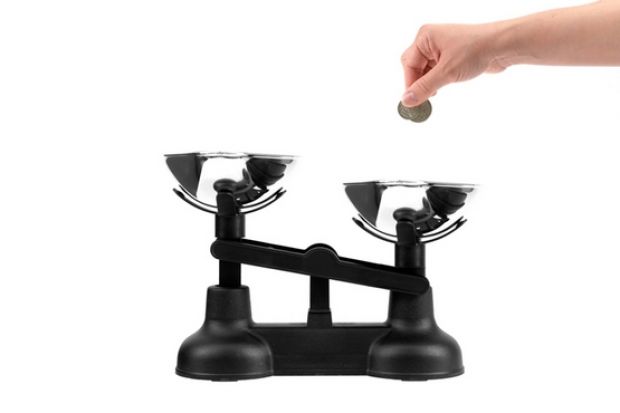The 18 higher education institutions will work towards having a minimum of 40 per cent men and 40 per cent women on their boards, with the remaining 20 per cent of places open to both genders, the Committee of Scottish Chairs announced on 9 April.
The commitment applies to the independent appointed members who typically make up two-thirds of a governing body, but it does not apply to the members who are elected by staff, students and sometimes alumni.
Currently, women represent 32 per cent of all independent members on Scottish university boards, and progress toward the 40 per cent target will be reviewed in 2018.
David Ross, chair of the Committee of Scottish Chairs and chair of the governing body at the University of Glasgow, said universities were “determined to do better” on gender equality.
“Our higher education sector thrives on diversity, whether that is diversity of opinion and perspective or the diversity of the 18 higher education institutions themselves,” he said.
“We must do everything we reasonably can to ensure that our governing bodies – the place where strategic decisions are made – reflect and encourage diversity amongst their membership.”
The committee said universities would work to attract more prospective female governors through targeted advertising and a relaxation of the requirement for previous board experience.
Mr Ross asked students and staff to make a similar commitment relating to their selection of their board members to help the overall drive towards equality.
The decision was announced as Scotland’s universities separately resisted efforts by the Holyrood government to impose further governance changes on institutions – including a requirement for chairs of boards to be elected – expressing concern over academic autonomy.
Michael Russell, the former Scottish education secretary, had voiced an interest in legislating to require 40 per cent of board members to be women, but the chairs’ decision will be seen as an example of what universities can achieve on governance independently.
Pete Downes, convener of Universities Scotland and principal of the University of Dundee, said the commitment was a “very positive step”.
“The 40:40:20 approach to gender balance gives institutions some flexibility to ensure we continue to appoint the strongest candidates to what are strategically important roles,” he said.
“This is important for good governance, for the candidates themselves and to ensure that our universities remain competitive.”
Roseanna Cunningham, the Scottish cabinet secretary for fair work, skills and training, described the chairs’ decision as a “significant step” towards the Holyrood government’s goal of achieving a 50:50 gender split on public, private and third sector boards by 2020.
“A fair gender balance on boards leads to better decision-making and stronger businesses and ties in with our commitment to promoting equality and social justice,” she said.
“It is great to see universities take the lead on this issue and we would encourage other organisations to follow their example.”
Register to continue
Why register?
- Registration is free and only takes a moment
- Once registered, you can read 3 articles a month
- Sign up for our newsletter
Subscribe
Or subscribe for unlimited access to:
- Unlimited access to news, views, insights & reviews
- Digital editions
- Digital access to THE’s university and college rankings analysis
Already registered or a current subscriber? Login




